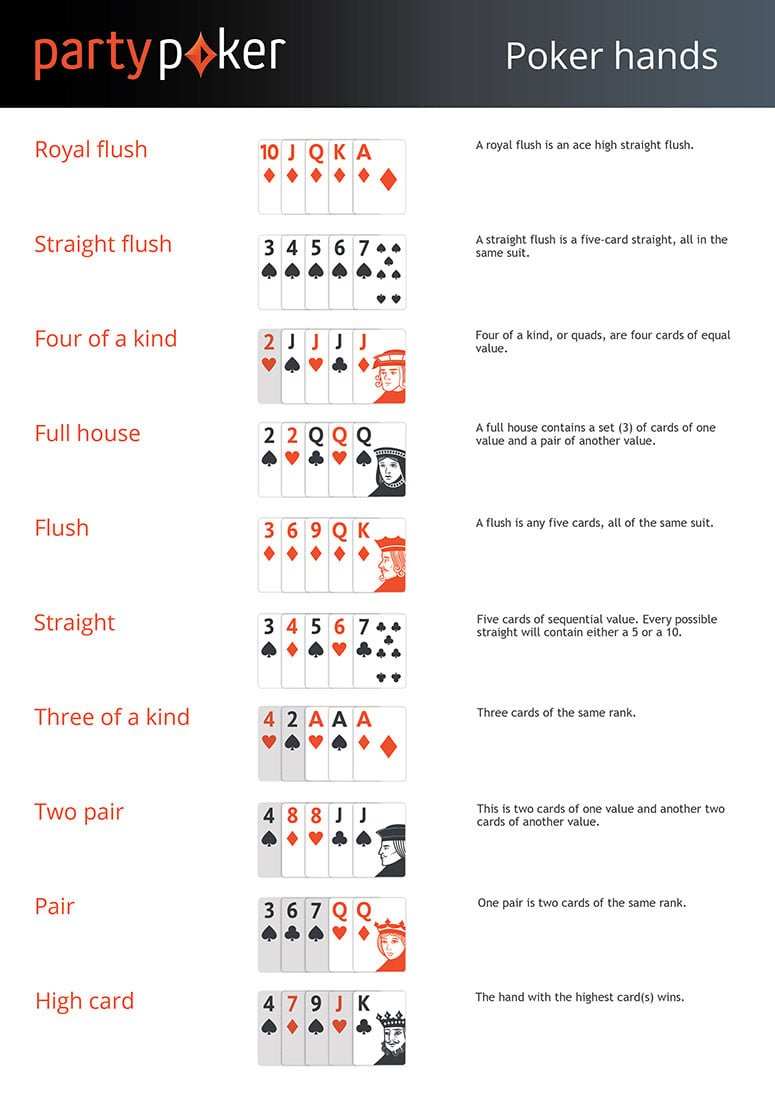5 Draw Poker Rules
Five Card Draw is the simplest form of poker and is a favorite at home games around the world. It’s an easy game to pick up and play because it requires little preparation. All you need is a deck of cards and at least two players.
Antes and Blinds
Some Five Card Draw games use antes and others use blinds. If an ante is used, each player is required to place a small bet at the beginning of each hand. Antes can range in size from 10% to 20% of the small betting limit. In a $5/$10 game, the antes would be about $0.50.
Due to the explosion of Texas Hold'em, some players are more comfortable using blinds rather than antes. If blinds are used, the two players to the left of the dealer must place bets at the beginning of each hand. As the dealer’s position moves around the table, each player must pay the blinds once per orbit.
5 Card Draw Rules. We'll start by explaining the rules of Five Card Draw, then we'll explain the differences between Fixed and Pot limit later on down the page, as well as recommending the best 5 Card Draw poker sites. Shuffle Up and Deal. Like I mentioned before, the game starts with two forced bets, called 'blinds'. The rules are the same as Five Card Draw - Jacks or Better except that a player needs a hand at least as good as three of a kind to win the pot. If the pot is won without a showdown, the winner must expose enough cards to prove that the hand is at least as good as three of a kind. This of course further reduces the scope for bluffing.
The player to the immediate left of the dealer is the small blind and must place a bet equal to half the size of the big blind. The big blind is one seat to the left of the small blind. The big blind is equal in size to the small betting limit. In a $5/$10 game, the small blind would be $2.50 and the big blind would be $5.
Dealer
In games that use a full time dealer, a small disc known as the “dealer’s button” is passed around the table to represent the dealer’s position. Even though the players never actually deal the cards, one of them is always known as the dealer. The dealer’s button moves one seat to the left at the beginning of each hand.
When performing the initial deal, the player to the left of the dealer receives one card face down first and then each other player receives one card, going clockwise around the table. After all the players have one card, the dealer hands out one more card to each player in the same fashion as before. This is repeated until each player has five cards.

First Betting Round
The first betting round begins after all the players receive their cards and have a chance to look them over. The player to the immediate left of the dealer (the small blind) starts the betting. This player may call, raise, or fold.
The betting then continues clockwise around the table. Each player will have a chance to call, raise, or fold. If there are no raises, the big blind can check because he already paid a full bet at the beginning of the hand. The small blind would have to complete the half-bet to stay in.
Draw
After all the bets have been matched, players may now discard as many cards as they wish and draw new ones. In some games, the rule is that you may only discard up to three cards unless you have an Ace. In that case, you can discard every card except the Ace. In most games, however, you may discard as many cards as you wish.
Second Betting Round

Now that the players have their new cards, a second round of betting may begin. This round begins with the first remaining player to the left of the dealer. This player may check, bet, or fold. The betting then continues clockwise around the table until all the players have had a chance to act.
Showdown
If there are two or more players remaining after the last betting round, these players have a showdown. The player with the best poker hand wins the pot. If only one player remains after the last betting round, that player may collect the pot without showing his cards.
5 Card Draw Poker Rules And Strategy
Play 5 Card Draw at PokerStars.com! Use marketing code PSP7236 for a $600 bonus!



